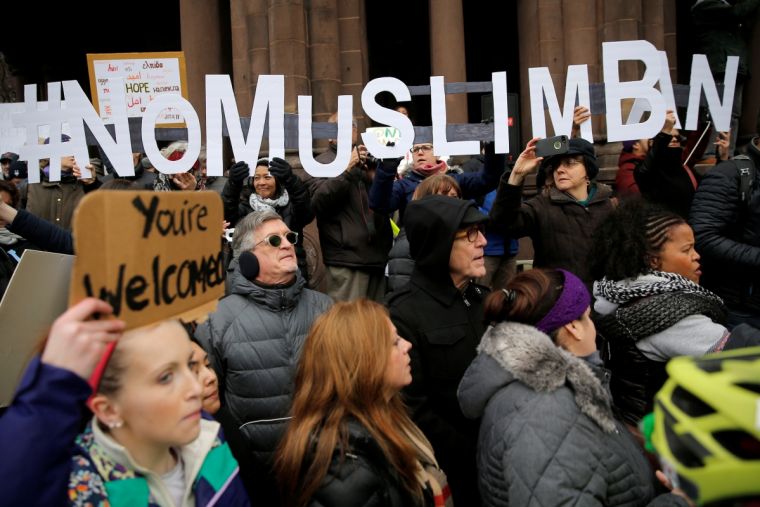Donald Trump's Muslim ban grilled in courts
Donald Trump's proposed travel ban faced scrutiny in courts on Monday as judges grilled the President's attempt to ban immigrants from six-Muslim majority countries.
Examining previous statements by Trump where he promised a 'total and complete shutdown on Muslims entering our country', the 4th US Circuit Court of Appeals in Richmond asked why these statements should not be taken into account.

'Is there anything other than willful blindness that would prevent us from getting behind those statements?' asked Judge Henry Floyd.
'Don't we get to consider what was actually said here, and said very explicitly?' Judge James Wynn said. 'There was sort of a wink and a nod.'
Responding the acting Solicitor General Jeffrey Wall said the second travel ban removed any link to religion and insisted the president must be allowed to act to defend national security, whatever he said during the campaign.
'The statements were ambiguous,' Wall said. 'The president clarified over time that what he was talking about were countries and territories that have known links to groups like ISIS (Islamic State) and al-Qaeda.'
But the Republican appointed judges on the panel also turned on the American Civil Liberties Union (ACLU), who brought the lawsuit.
They asked how far back Trump's past words could be used against him in an effort to understand his intent.
"Can we look at his college speeches? How about his speeches to businessmen about 20 years ago? Are we going to look at those, too?" Judge Paul Niemeyer asked.
Judge Dennis Shedd pressed ACLU attorney Omar Jadwat on if it would matter if Trump apologised for his past comments on a 'Muslim ban'.
'What if he says I'm sorry every day for a year?' Shedd asked to laughter from the courtroom.
It comes as part of an ongoing legal battle over Trump's attempt to halt the US refugee programme and ban immigrants from a list of six countries - Iran, Libya, Somalia, Sudan, Syria and Yemen – for 90 days.
The second order was an attempt to override any legal issues after they decided not to fight a legal challenge against the first.











